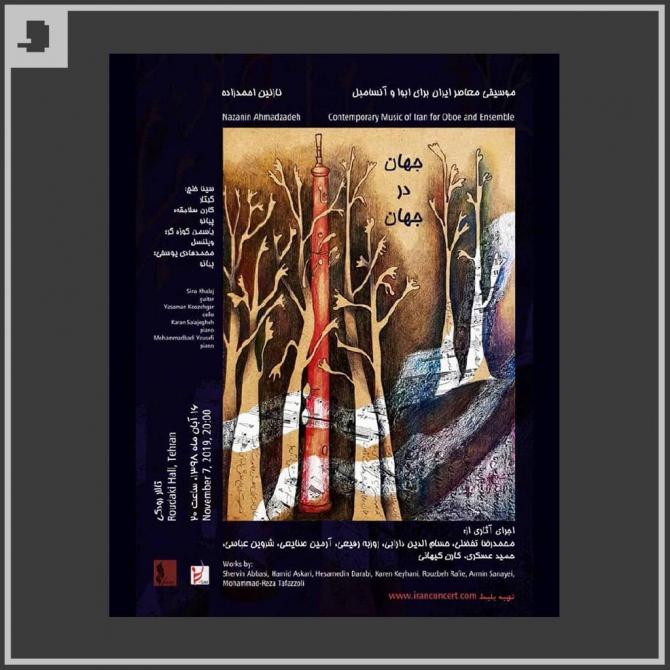Different Meanings of Being Contemporary
A Review about Jahan Dar Jahan (World To World) Concert: Iranian Contemporary Music for the Oboe and the Ensemble
It’s impossible to avoid thinking about a concert which is manifested by this phrase: “Iranian contemporary music for the oboe and the ensemble” that make us curious to ask what kind of music this “Iranian contemporary music” certainly is, and even what’s “being contemporary”? This type of question isn’t just about a particular concert and its repertoire. That question would be asked about all the concerts and the albums which are ornamented by this voguish tag. At least if not all of them, we must inquire half of them about what’s being contemporary that can include all of these different effects.
7 composers with assorted method and different pedagogic backgrounds, all are gathering together in one single composing project, and this gathering can give us the opportunity of acquainting the main flow. This situation will make asking this question more inevitable than ever. On the other hand, no general answer can be reached. Rather, coming up with different answers to the approach of each or some of the composers, rather than giving us a theoretical answer, will lead us to describe part of the concert.
Accordingly in search of a true reply, while listening the pieces of MohamadReza Tafazoli we see his “new version of himself”, indeed we find him in pastoral abandoning his preceding secure world that we seldom perceived before.
The answer to the question in Armin Sanayei's performance and his Karak is playing with Iranian music and chopping it up like a mosaic structure that plays every time on the edge of acquaintance and defamiliarization like an acrobat, and still stays on its slim line without falling.
For Roozbeh Rafi'i and Sherwin Abbasi, as far as Gogrio and Sahastan allow it to be observed, the answer lies in form perplexity with differences (one in disrupting structural relations and the other in relation to being literary).
For Karen keyhani and his va khazan-e to che abad tar ast az bahar-e man (How prosperous is your autumn than my spring), Like so many other times, the right answer is his own discovery of the audio-poetic world (this time his revelation for the oboe instrument) and for Hessamuddin Darabi and his Soor (feast), the answer is determining what the composer authenticate effectively in forming personality (the oboe and its symbolic relevance can be seen in this piece with his ancestor the Sorna instrument).
Eventually, in Hamid Askari Rabory’s performance we can hardly attain entire and clarified answer to that important question.
This review is written exclusively for www.noise.reviews; All rights reserved for Noise Reviews, 2019 ©


